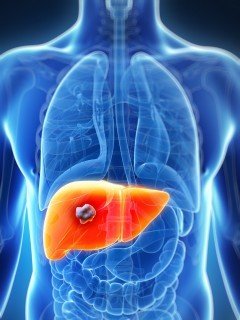This is certainly a different kind of alphabet and the statistics show that it is quite dangerous. After tuberculosis, hepatitis is the second major killer infectious disease. According to the World Health Organisation, 9 times more people are infected with hepatitis than with HIV. Today is World Hepatitis Day. Today coincides with the birthday of Dr. Baruch Blumberg. In addition to winning the Nobel prize, in 1967 he discovered the hepatitis B virus and developed a diagnostic test and vaccine for the virus.

What is hepatitis?
This is a kind of inflammation that happens in the liver. Hepatitis A, B, C, D, and E are all examples of predominant types of viral hepatitis – and can be spread from person to person. Sexual contact can also spread it further.
In addition, viral hepatitis can vary from acute hepatitis to chronic stage. When it is chronic, it can last for more than 6 months. While viruses are the most common cause of this disease, several other factors can cause it to appear. These include toxic substances such as specific kinds of drugs and alcohol, as well as autoimmune diseases and other infections.
“Not all types of the hepatitis virus are spread through direct exchange of bodily fluids,” says Dr. Jacques Badenhorst. He is a gastroenterologist practicing at the Netcare Christiaan Barnard Memorial hospital in Cape Town. “Of the five different types of hepatitis, Hepatitis A and E are spread through contaminated food or water, while types B, C, and D are transmitted through blood and body fluids.”
Why your liver is so important
Most people would be able to say that they know their liver is one of the important detox organs, and they would be right. But few people know the many other functions that this organ performs, and why it has such a vital role to play in our overall health. Amongst other things, your liver is responsible for:
- Producing Energy
- transforming nutrients into useful chemicals that your body needs
- storing vitamins and minerals
- recycling blood cells
- breaking down fats
- filtering out poisons
- producing protein, which is important for blood clotting
- Clean your blood out of alcohol and other toxins
As a result, when something is interfering with the functions of the liver, it has an immense impact on the person’s health.
Did you know?
The liver is the only organ in the body that can regenerate itself. This is true for most vertebrae from humans to fish. Studies show that the human liver can regrow two-thirds of its tissue back in 8-15 days. In a few weeks, you would not be able to know the new organ from the old one. The liver is also the largest solid organ we have.
What are the symptoms of the disease?
This can be a tricky disease to spot because often, the symptoms don’t show up immediately or even at all. According to the Centers for Disease Control and Prevention, many people living with hepatitis don’t even know they have it. However, this disease can happen to anyone, and it is highly infectious.
When inflammation occurs, it is the reaction of the tissue due to injury. Hepatitis usually starts out with symptoms that resemble the flu, such as body aches, fever, and fatigue. If it persists, things like weight loss, skin rashes, loss of appetite, can occur. The Cleveland Clinic, explains that, eventually, sufferers can experience pain, swelling, and redness. Also, it can be self-limiting or can progress to fibrosis, cirrhosis, or liver cancer.
The danger of working with unclean equipment
According to Sky News in May this year, Public Health England (PHE) was investigating what it called “potential breaches of infection control procedures” at the dental surgery establishment. It was directed at a hygienist who used to work at Dentality @ Hoddesdon in Hertfordshire. More than 500 patients were told to test for HIV and hepatitis, following concerns that unclean equipment was being used on them.
Did you know that sterilizing your equipment is one of the most important things to do in order to avoid hepatitis? Hepatitis is a serious infection that can be transmitted through contact with blood or other bodily fluids. If you work in a medical setting, it’s important to use the right equipment so as not to contaminate yourself and others.
If you are not careful, the equipment may become contaminated and introduce new bacteria to the environment. There are many ways to keep your medical equipment sterilized. A medical autoclave machine repair is a modern and efficient way to sterilize and clean medical equipment. It will help to reduce the risk of being infected with hepatitis.
An independently contracted hygienist was dismissed after an investigation was launched to look into the matter, as reported by the BBC.
Dr. Vishaal Shah is the principal dentist at the establishment. He spoke to the BBC about how it was handled, saying: “As soon as we became aware of behavior from a hygienist that did not meet the rigorous standards we expect from our entire team, we immediately launched a full investigation and escalated the matter to all key authorities.”
All of the patients at the practice to whom the self-employed hygienist has given dental ultrasonic scaling have received letters.
“We understand anyone receiving these letters will have concerns and while there is an extremely low risk of exposure,” said Dr. Shah. “All these patients are being offered detailed information and a dedicated number to call to book an appointment for blood testing as a precaution and get further advice.”
Dr. Jorg Hoffmann added: “Testing is being offered as a precautionary measure. We know patients will be anxious about this situation and they will be supported by the NHS and PHE throughout.”
“Effective treatments are available for all blood-borne viruses, which is why it is important to identify anyone who may have been put at risk of infection so testing and treatment can be offered.”
What’s the difference between them?
1. Hepatitis A (HAV)
This type of disease, while communicable, is treatable by the vaccine. HAV predominantly spreads through people by the fecal-oral route. Contaminated food or water can also help facilitate the spread of the disease. According to the Centers for Disease Control and Prevention, it is self-limiting and does not end in chronic infection.
The usual symptoms of hepatitis show themselves in HAV, but this usually resolves itself within 2 months of infection. Prevention is most effective through vaccines and avoiding contaminated foodstuffs.
“If you plan to travel to countries with poor sanitation,” says Dr. Badenhorst, “you’ll want to make sure you practice good hygiene, including washing your hands after bathroom trips, drinking previously boiled water or purified bottled water, and avoiding uncooked food and undercooked meat.”
2. Hepatitis B
HBV can become chronic, and if you do get it, your risk of developing liver failure, liver cancer, or cirrhosis increases. However, according to the Mayo Clinic, most adults with this disease can usually recover fully. Children are more at risk of getting this disease chronically.
Needles and syringes enable the spreading of the disease when they are contaminated with infected blood. Unprotected sexual contact does the same. Accidental needle sticks can also spread the disease, and pregnant women can pass the virus to their babies during childbirth. Once again, the vaccine is the best prevention. “If you’re considering starting a family, now is a good time to be tested for HBV and consider being vaccinated before you become pregnant,” says Dr. Badenhorst.
3. Hepatitis C
HCV is blood borne, and infection predominantly happens through exposure to small quantities of blood. Additionally, in its chronic state, it usually leads to liver cancer or cirrhosis. Unfortunately, there are currently no vaccines for HCV, but, according to the WHO, antiviral medicines can cure more than 95% of those infected with it.
4. Hepatitis D
This is also known as “delta hepatitis” or HDV. The National Institute for Communicable Diseases explains that you can only get HDV if you already have HBV since HDV is an incomplete virus. It, therefore, needs the first virus to replicate and successfully cause an infection. It spreads through percutaneous or mucosal contact with infected blood, and as yet there is no vaccine. The HBV vaccine can help prevent HDV.
5. Hepatitis E
In several developing countries, water sanitation is less than adequate. If this is a problem, there is a bigger risk for Hepatitis E. Like HAV, it spreads through fecally contaminated drinking water. Individuals who find themselves in refugee camps or temporary housing following a natural disaster are most at risk for this disease.
6. Alcoholic hepatitis
A person who is drinking heavily over a long period of time is most at risk for developing this disease. That’s because the way that alcohol is broken down in the liver is potentially destroying liver cells through inflammation. This then interferes with the liver’s function of filtering toxins from alcohol from the blood.
If you already have other types of hepatitis, you are more at risk for getting it, and should not drink alcohol.
Alcoholic hepatitis can show through symptoms like stomach pain, weight loss, and reduced appetite, weakness, nausea, and vomiting. Your eyes and skin can also turn yellow, indicating jaundice. According to Medical News Today, there is currently no cure, so treatment will look to reduce the symptoms and prevent the disease’s progression.
Protect and Prevent
There are several steps that you can take to protect your health against this disease. Dr. Badenhorst provides the following advice:
- If you are going to be in contact with bodily fluids from another person, such as blood or vomit, protect yourself by wearing gloves.
- Avoid sharing personal items with other people, like razors, toothbrushes, or earrings.
- Practice safe sex at all times. If you have multiple partners, you need to use condoms all the time.
- Don’t share chewing gum.
- Are you planning to get a piercing, tattoo, or even a manicure? Make sure that all equipment is sterilized before it is used on you.
- When traveling abroad, take care to consume only clean food and water.
“Effective vaccines are available against hepatitis and it is highly recommended that you go for immunization if you think that you are at risk, now or in the future,” he says. “It is particularly recommended that you be vaccinated if you are planning to travel to a country that does not have proper sanitation.”
Modify your diet for better liver health 
Now that you know how to avoid the virus that leads to hepatitis, you can help strengthen your liver’s function by including certain healthy foods in your diet. They need to be high in fiber, Omega 3 fatty acids, and antioxidants while being low in saturated fat, sugar, simple starches, salt, and alcohol. According to Medical News Today, these include the following:
- green tea and coffee
- garlic
- grapes and berries
- grapefruit
- oatmeal
- nuts, fatty fish and olive oil
WHO has the following objectives for this year’s World Hepatitis Day:
- Urge national and regional policy-makers to increase political and financial commitments for hepatitis response.
- Highlight WHO’s new costing estimates for hepatitis elimination within the context of health-related Sustainable Development Goals (SDGs) and UHC by 2030.
- Encourage people to come forward to access hepatitis prevention, testing, and treatment services.






![women [longevity live]](https://longevitylive.com/wp-content/uploads/2020/01/photo-of-women-walking-down-the-street-1116984-100x100.jpg)










